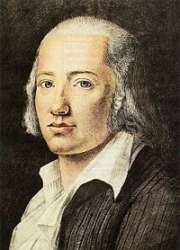Pagina: 1
STUTTGART
:
 Poezie 2008-06-18 (9203 afişări) Poezie 2008-06-18 (9203 afişări)
FÊTE DE LA PAIX
:
 Poezie 2008-06-16 (12039 afişări) Poezie 2008-06-16 (12039 afişări)
Cântecul de ursită al lui Hyperion
:
Poezie 2009-06-23 (15275 afişări)
Chant du destin d’Hypérion
:
 Poezie 2008-08-07 (16372 afişări) Poezie 2008-08-07 (16372 afişări)
Courage de poète
:
 Poezie 2008-06-18 (13942 afişări) Poezie 2008-06-18 (13942 afişări)
EMPEDOCLE
:
 Poezie 2008-08-02 (9780 afişări) Poezie 2008-08-02 (9780 afişări)
GERMANIE
:
 Poezie 2008-06-16 (9560 afişări) Poezie 2008-06-16 (9560 afişări)
Heidelberg
:
 Poezie 2008-06-18 (15420 afişări) Poezie 2008-06-18 (15420 afişări)
La Grèce
:
 Poezie 2008-08-05 (9275 afişări) Poezie 2008-08-05 (9275 afişări)
La vue
:
 Poezie 2008-08-05 (8979 afişări) Poezie 2008-08-05 (8979 afişări)
Le Neckar
:
 Poezie 2008-08-07 (10192 afişări) Poezie 2008-08-07 (10192 afişări)
Le pays
:
 Poezie 2008-08-06 (10081 afişări) Poezie 2008-08-06 (10081 afişări)
LE RHIN
:
 Poezie 2008-06-16 (19546 afişări) Poezie 2008-06-16 (19546 afişări)
L’acclamation des hommes
:
 Poezie 2008-06-16 (8904 afişări) Poezie 2008-06-16 (8904 afişări)
L’amitié
:
 Poezie 2008-08-02 (13388 afişări) Poezie 2008-08-02 (13388 afişări)
MÉTIER DU POÈTE
:
 Poezie 2008-06-16 (11319 afişări) Poezie 2008-06-16 (11319 afişări)
MOITIÉ DE LA VIE
:
 Poezie 2008-08-05 (10456 afişări) Poezie 2008-08-05 (10456 afişări)
PAIN ET VIN
:
 Poezie 2008-06-16 (25352 afişări) Poezie 2008-06-16 (25352 afişări)
PATMOS
:
 Poezie 2008-06-16 (25162 afişări) Poezie 2008-06-16 (25162 afişări)
RETOUR AU PAYS
:
 Poezie 2008-08-05 (13474 afişări) Poezie 2008-08-05 (13474 afişări)
SOUVENIR
:
 Poezie 2008-06-16 (17038 afişări) Poezie 2008-06-16 (17038 afişări)
Vie supérieure
:
 Poezie 2008-08-05 (9070 afişări) Poezie 2008-08-05 (9070 afişări)
Pagina: 1 |
|

|
|
|
|
Biografie HÖLDERLIN, Friedrich
Johann Christian Friedrich Hölderlin (20 March 1770 – 6 June 1843) was a major German lyric poet. His work bridges the Classical and Romantic schools.
Having spent most of his life tormented by mental illness, he suffered great loneliness, and often spent his time playing the piano, drawing, reading, writing, and enjoyed travelling when he had the chance.
The poetry of Hölderlin, widely recognized today as one of the highest points of German literature, was little known or understood during his lifetime and slipped into obscurity shortly after his death; his illness and reclusion made him fade from his contemporaries' consciousness – and, even though selections of his work were being published by his friends already during his lifetime, it was largely ignored for the rest of the 19th century.
In fact, Hölderlin was a man of his time, an early supporter of the French Revolution – in his youth at the Seminary of Tübingen, he and some colleagues from a "republican club" planted a "Tree of Freedom" in the market square, prompting the Grand-Duke himself to admonish the students at the seminary. He was at first carried away by Napoleon, whom he honors in one of his couplets (it should be noted that his exact contemporary Beethoven also initially dedicated his Eroica to the Corsican general).
Like Goethe and Schiller, his older contemporaries, Hölderlin was a fervent admirer of ancient Greek culture, but had a very personal understanding of it. Much later, Friedrich Nietzsche would recognize in him the poet who first acknowledged the Orphic and Dionysian Greece of the mysteries, which he would fuse with the Pietism of his native Swabia in a highly original religious experience. For Hölderlin, the Greek gods were not the plaster figures of conventional classicism, but living, actual presences, wonderfully life-giving and, at the same time, terrifying. He understood and sympathized with the Greek idea of the tragic fall, which he expressed movingly in the last stanza of his "Hyperions Schicksalslied" ("Hyperion's Song of Destiny").
2004 film, The Ister, is based on Martin Heidegger's 1942 lecture course (published as Hölderlin's Hymn "The Ister"). The film features Jean-Luc Nancy, Philippe Lacoue-Labarthe, Bernard Stiegler, and Hans-Jürgen Syberberg.
The 1985 film Half of life is named after a poem of Hölderlin and deals with the secret relationship between Hölderlin and Susette Gontard. It stars German actors Ulrich Mühe and Jenny Gröllmann.
In 1986 and 1988 Danièle Huillet and Jean-Marie Straub shot two films "Der Tod Des Empedokles" and "Swarze Sunde" in Sicily, which were both based on the ominous Holderlin drama (respectively for the two films they used the first and third version of the text).
A 1981-82 television drama, "Untertänigst Scardanelli" (The Loyal Scardanelli), directed by Jonatan Briel in Berlin.
|





